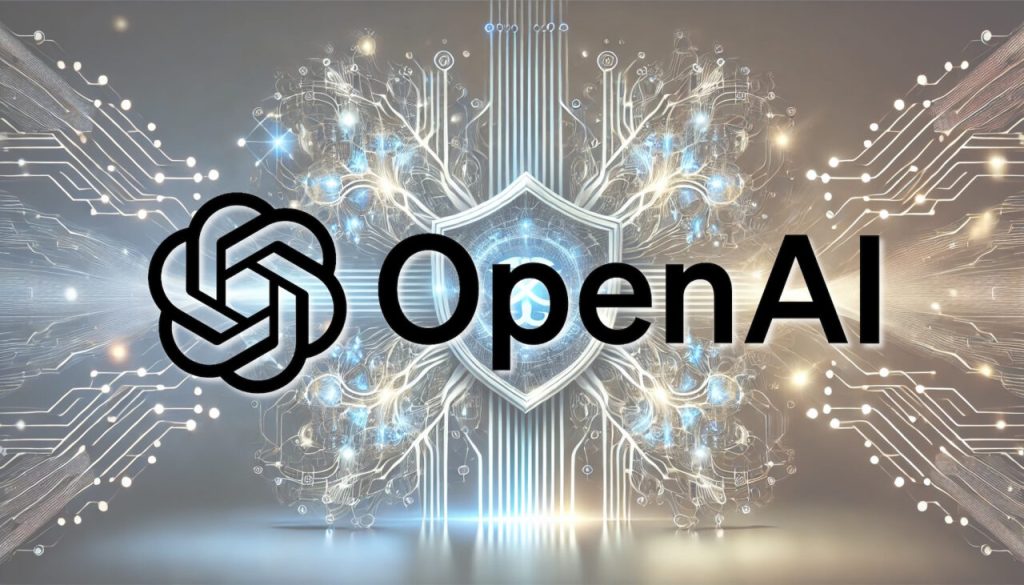OpenAI is implementing a major security overhaul to protect its intellectual property from corporate espionage, a move reportedly accelerated by concerns over rival AI firms. The clampdown follows persistent allegations that Chinese competitor DeepSeek improperly used OpenAI’s models for training.
This internal fortification, detailed in a July 7 report from the Financial Times, includes limiting staff access to sensitive projects and adding biometric controls. The move comes as DeepSeek faces a potential ban in Germany and intense scrutiny from U.S. lawmakers, highlighting an escalating tech rivalry that threatens to reshape the competitive landscape for generative AI.
OpenAI Fortifies Its Digital Fortress
In response to what some analysts are calling an “AI Cold War”, OpenAI is erecting a digital fortress around its most valuable assets. The company is reportedly isolating proprietary technology on offline computer systems, a significant step to prevent remote unauthorized access from sophisticated state actors.
The new protocols also include “information tenting,” a policy that compartmentalizes knowledge of sensitive algorithms and new products. During the development of its o1 model, for instance, only verified team members who had been read into the project could discuss it in shared office spaces.
To further secure its physical premises, the company is deploying biometric access controls, requiring employees to scan their fingerprints to enter certain areas. This is coupled with a “deny-by-default” internet policy, which blocks all external connections unless they receive explicit, case-by-case approval.
This pivot from purely digital defenses to robust physical and operational security signals a new level of caution in Silicon Valley. These measures represent a dramatic escalation, moving beyond standard cybersecurity to a posture more common in national security or defense contracting whether from external hackers or internal threats.
A Pattern of Suspicion: The DeepSeek Distillation Saga
OpenAI’s security pivot was reportedly accelerated by the actions of Chinese AI firm DeepSeek. The company has formally accused its rival of misusing its services in violation of its terms. In a statement to a U.S. House committee, OpenAI declared, “DeepSeek employees circumvented guardrails in OpenAI’s models to extract reasoning outputs, which can be used in a technique known as ‘distillation’ to accelerate the development of advanced model reasoning capabilities…”.
This process, known as distillation, involves training a new model by feeding it a vast number of queries and responses from a larger one. The practice is highly controversial, as it not only violates the terms of service of major AI providers but also undermines the massive R&D investments required to build foundational models.
The allegations are supported by external findings. A March 2025 study by forensic analysis firm Copyleaks found that DeepSeek R1’s output shared a 74.2% stylistic match with ChatGPT. This suggested that DeepSeek’s models had learned extensively from OpenAI’s systems.
The pattern of suspicion continued into June 2025, when new claims emerged that DeepSeek may have also used outputs from Google’s Gemini AI to train its updated R1-0528 model. While difficult to prove definitively, the recurring similarities have fueled industry-wide debate about AI ethics.
The U.S. House Committee report on DeepSeek added further weight, alleging that DeepSeek personnel “infiltrated U.S. AI models and fraudulently evaded protective measures under aliases” to perform distillation.
Committee Chairman John Moolenaar asserted, “deepSeek isn’t just another AI app — it’s a weapon in the Chinese Communist Party’s arsenal, designed to spy on Americans, steal our technology, and subvert U.S. law.” The report alleges the app funnels user data to PRC servers via infrastructure linked to state-owned China Mobile and enforces CCP censorship, based on its investigation.
The pressure is also mounting in Europe. On June 27, Berlin’s data protection authority requested that Apple and Google remove the DeepSeek app from German app stores. It labeled the app “unlawful content” under the powerful Digital Services Act (DSA), a strategic move that puts the onus on the platforms.
The regulator’s action is based on the charge that DeepSeek illegally transfers user data to China, violating the EU’s GDPR. Berlin’s Commissioner Meike Kamp explained the core issue is that users in China lack the “enforceable rights and effective legal remedies… guaranteed in the European Union” that are standard in the EU.
This concern is not merely theoretical. Cybersecurity firm Feroot corroborated these data transfer risks, with its CEO Ivan Tsarynny noting they observed “direct links to servers and companies in China that are under government control” when analyzing the app’s network traffic.
These external crises are compounded by internal troubles. The launch of DeepSeek’s highly anticipated next-generation R2 model is now “indefinitely stalled,” according to a June 27 report from The Information.
The delay stems from a two-front crisis: internal performance dissatisfaction and a hardware famine created by U.S. export controls on vital Nvidia AI chips. This has created a significant opening for rivals to surge ahead while DeepSeek is hobbled.
This paradox—where a company under siege for IP theft provides the open-source foundation for innovation elsewhere, such as TNG’s new DeepSeek model variant demonstrating the complex, global nature of AI development—perfectly captures the chaotic and interconnected state of global AI development today.

